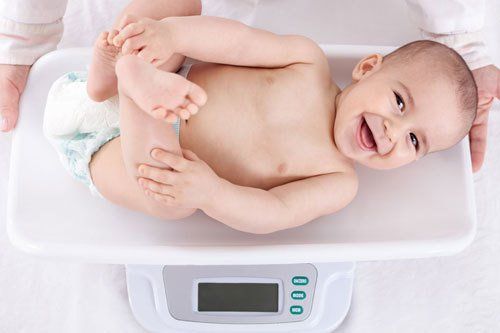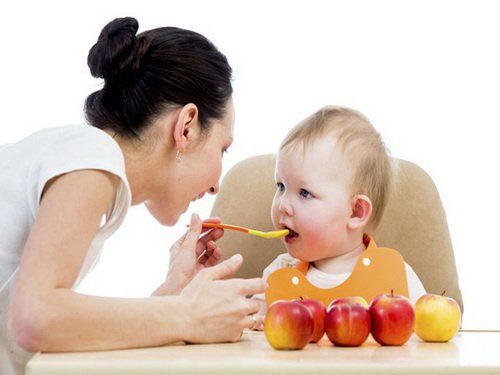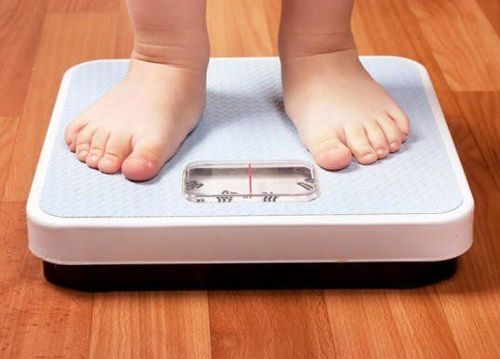This is an automatically translated article.
Children at 16 months old will enter a stage with curiosity, love to explore and learn about their surroundings. Therefore, at this stage, children still need both physical and intellectual development. The baby's weight at this time is also quite important for development. So how much should a 16-month-old baby weigh?
1. The process of physical development of children
When a baby is born, the baby's weight can increase very quickly for the first time and by the time the baby is about 1 year old, the weight can be one and a half times the weight when the baby is born.
So, how much does a 16-month-old baby weigh? To answer this question, it is recommended to rely on the standards of the World Health Organization - WHO to evaluate. According to the above criteria, the average weight of 16-month-old children divided by sex includes:
Girls: average weight 9.8 kg Boys: average weight 10.5 kg Child's weight in the first years of life has ceaseless change. This factor also reflects the health status as well as the child's physical and developmental ability. Therefore, parents need to pay attention to monitor the child's weight right from the time the child is still in the pregnancy stage, the neonatal period and continue to monitor throughout the child's growth and development afterwards to have good opportunities. child care facilities develop better. This also solves the problem related to how much weight a 16-month-old baby will be appropriate.

Trẻ 16 tháng nặng bao nhiêu kg là thắc mắc của nhiều phụ huynh
2. Physical changes of 16-month-old babies
A child's physical development starting at 16 months of age is demonstrated by a fairly obvious change in the child's motor skills. However, depending on the specific case, children can learn to walk by holding onto objects in the house or taking short steps. In addition, children's static motor skills have also been improved compared to the previous time, helping children to perform complex actions including: taking off socks, holding a spoon, or doodle with a pencil color. In addition, children also have activities such as: climbing on objects or being able to climb out on their own or at least being able to hold on to things to go ...
To care for children to develop well in At this stage, parents need to pay attention to a number of issues:
Nutritious diet: At this stage, children also have about 11-13 baby teeth, but this number is still not enough. so that children can chew and crush all foods like older children. Therefore, the child's diet often applies porridge and flour. In addition to these two meals, parents can give their children soft foods such as vermicelli, pho.... At the same time, a child's meal must ensure all four food groups, including: protein-containing foods. - meat, fish, eggs, milk..., food group rich in fat - oil, fat, butter..., food group rich in carbohydrates - rice, corn, potato, cassava..., food group rich in fiber - vegetables, ripe fruits, ... Parents should give children a variety of foods to diversify their children's meals, and at the same time can add suitable dishes made from milk such as: Yogurt, cheese ... to provide enough nutrients to help children develop comprehensively. The number of times a child eats a day should also be done with 3 main meals a day with alternating 3-4 breast feeding sessions.
Choosing safe foods for children's meals: Parents should not choose for children prepared foods such as ready-made porridge, canned fruits, or fast foods because these foods are not safe for children. This product is not completely safe for children. Therefore, parents should choose fresh foods, ensure food hygiene and safety to use in preparing children's meals. Besides, parents also need to pay attention to the living environment around their children. Indoor plants can be planted to facilitate the air purification process, however, parents need to choose plants carefully. Because plants with long, sharp leaves can be dangerous for children. Or do not leave harmful chemicals within the reach of children. Children at 16 months old can climb and explore the nooks and crannies of the house. So children are more likely to have access to dangerous objects. Parents should keep these items out of the reach of children to ensure their safety.

Để trẻ 16 tháng tuổi cân nặng đạt chuẩn, trẻ cần có một chế độ ăn đảm bảo dinh dưỡng
3. Factors affecting the weight of 16-month-old children
3.1 Genetic factors affecting the weight of a 16-month-old child When a child is born, he or she will receive all the genetic characteristics from his parents. And researchers have also proven that genetic factors have a big impact on growth as well as body size.
In addition, the researchers also provided evidence that blood type, body fat and parents' weight also significantly affect the weight of children in the future. However, the effects of this factor only fall within 23% of the overall effects on child weight.
3.2 Chronic diseases have a significant impact on the weight of 16-month-old children Chronic diseases, disabilities or surgery are also classified as factors that negatively affect children's physical development. According to studies published in the Journal of the National Medical Association of the United States, children with a history of serious medical conditions such as sickle cell anemia often have a shorter height and a much lighter weight. compared with normally developing children. At the same time, due to this factor, the physiological development and reproductive health of children at puberty are disrupted and delayed.
3.3 Maternal health during pregnancy and lactation affects the growth and weight of 16-month-old children The health of pregnant women during pregnancy plays an important role in the development of children. fetus as well as that of children in the future. Research on the effects of maternal health during this period on child development shows that stress during pregnancy can have a negative impact on the development of children's mental health and intelligence. In addition, the mother's diet is full of nutrients and necessary micronutrients such as iron, folic acid, calcium, ... can help children develop comprehensively and gain weight standards.
In addition to noting the above problems, the baby also needs to be supplemented with necessary micronutrients: Zinc, selenium, chromium, Vitamins B1 and B6, Ginger, acerola fruit extract (vitamin C),... to improve Improve your taste, eat well, reach the right height and weight, and exceed the standard, have a good immune system, strengthen your resistance to get sick less often and have less digestive problems.
Please regularly visit Vinmec.com website and update useful information to take care of your baby and family.













